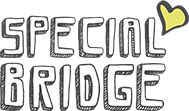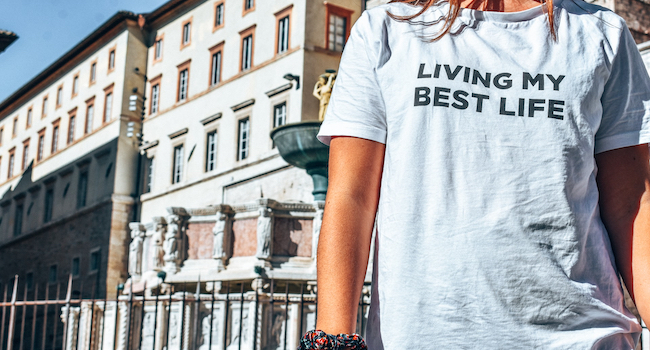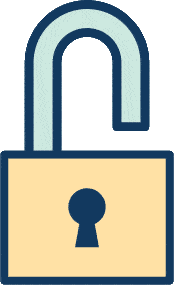Living with a disability provides challenges that the average person would not fully understand. While disabilities may be physical, mental, visible, or invisible, they change how you might view yourself.
You may be self-conscious about how other people view you. You may feel inhibited in public to be yourself for fear of being judged entirely. You may think poorly of yourself because of the way society has conditioned you to think of yourself as being at a disadvantage.
However, life doesn’t have to be that way. You can use the following habits to build your self-confidence, find your authenticity, and lower your anxiety. Keep reading to unapologetically step into your true nature and overcome the personal woes of being disabled.
De-Stigmatizing Yourself
Learning how to reduce anxiety naturally comes from de-programming what society has taught you to believe about disabilities. The stereotypes exist, but they offer little insight into what being disabled truly means.
While people in wheelchairs or with other physical disabilities or people with Down Syndrome are the faces of disabilities, the group of disabled people goes further beyond that.
From learning disabilities to rare disabilities to mood disorders, there are a plethora of criteria and diagnoses that qualify as being disabled. However, society pressurizes the disabled and tends to have an idea made up of what being disabled means. Truly disabled people have a different and better understanding of themselves.
Whether you identify as disabled or not, reprogramming your mind to not limit yourself to the confinements of stereotypes goes a long way in adjusting your mindset to improve confidence.
Instead of feeling like your disability is more or less severe than someone else’s, give yourself the grace that your disability is just as valid as someone else’s.
If you find yourself being treated differently, know that it is the fault of someone being miseducated on people with disabilities and not because there is something wrong with you. Many people go through hardships behind closed doors. People with visible disabilities have to face the world with their hardships on display.
Using Disability to Become Altruistic
Use this to your advantage. Learn how to be more compassionate with others. Understand that many are struggling in one way or another just as much as you have struggled. Use what you have learned from having a disability to nurture others in a way that makes them feel seen.
Altruism is the best way to rebuild your own relationship with yourself.
Overall, identifying where your beliefs on people with disabilities and how people with disabilities are treated are limited helps you adjust your attitude towards yourself and the way others view you.
Positive Affirmations to Build Your Self-Confidence
Positive affirmations are a proven way to build your self-confidence. There are a number of ways to add positive affirmations into your daily routine.
Journaling is one way to write down positive affirmations about yourself and your life. Use a journal at any point in the day to manifest your ideal self.
Here are some examples of positive affirmations:
“I am rooted and comfortable in my mind and body.”
“My mind, body, and spirit are in alignment.”
“I exude self-confidence, calmness, and assurance in myself.”
“I am connected to my higher self, only acting and thinking in accordance with the most divine good.”
“Others follow my example as I lead people to be more creative, authentic, and honest.”
“I have no problems displaying my true nature to my loved ones and to the world.”
“Anxiety and worry are byproducts of other people’s intentions that I have absorbed. I hereby release these energies, claiming my own emotional energy back to me.”
“My emotional well-being is grounded.”
“I am the healthiest version of myself.”
“I rebuke any attempt meant to harm me or my viewpoint of myself.”
“I always find my way back to myself if I am led astray.”
These are just some examples of what you can write or repeat aloud. Repeating affirmations at least three times makes your brain believe the statements to be true.
It’s important to write or say affirmations in the present tense. This tricks your brain into thinking these statements are already true even if they are not. Saying affirmations in the future tense, ‘I will’ statements, makes your brain think that you are not capable of currently receiving the upgrades in your life.
Self-Affirmation Benefits
While these are great examples of affirmations, don’t be afraid to personalize them. Get creative with them and have fun. Affirmations are a way to attract what you want in your life.
Imagine the best version of yourself and what that looks like and write it or say it aloud. The more personalized the affirmations, the more they will resonate and work at managing anxiety and reducing stress.
Self-affirmations also aim at improving confidence. Affirmations give us a sense of greater self-identity and understanding of the self.
Affirmations have been shown to increase the health of those who use them. They also correspond with less thought, rumination, and anxiety.
Think of affirmations as an easy way to hack your life. They serve a greater purpose. They confirm what you want to be true about yourself.
Build Your Self-Confidence Today
The takeaway from all of this is to get you to see yourself in a more positive light and build your self-confidence. Just because you have a disability doesn’t mean you should be so hard on yourself.
Reclaiming your own self-identity by eliminating what others project onto who they think you are and reprogramming who you are with affirmations is the perfect recipe for recreating a self-identity.
For more tips on coping with a disability and finding ways to connect with others with disabilities, sign up for Special Bridge’s services.




3 comments:
wandakate robinson
July 30, 2021 at 4:02 pm
I am visually disabled with several limitations due to adult post polio syndrome and a progressive hearing impairment in the cochlear of both ears…I got polio after taking the injection at the age of 6 and my 7 I had POLIO and it affected my everyday life for all these years.
Best to at least THINK that I am normal…My mind is set on telling me that I am actually 20 years younger than I really am…That mindset keeps me young at heart…Everything that should work still works b/c I think that it can, so it does…We are what we EAT…We can focus on thinking positively about all things…We need to focus on survival and live with what we have and do the best we can do all day, everyday until this life is finally over on this earth…Pray for safety always…Blessings to the whole disabled community…
Wandakate in the mountains of North Carolina.
DAVE B HARDING
July 31, 2021 at 6:19 pm
I have a learning disability But I want to get a degree I think my lack of education has held me back. minamun wadge jobs ect.
Nakato Rose
August 2, 2021 at 5:06 am
That’s an interesting story, coz it seems you are not alone am having the same problem like yours so it gives me confidence to believe that dispite this did ability life still have to go on. And also to believe that, that is a real me.